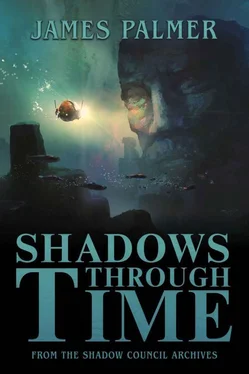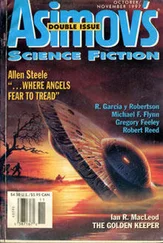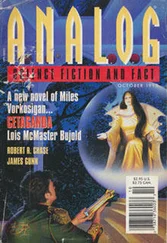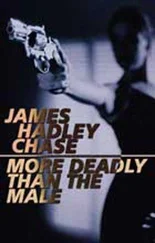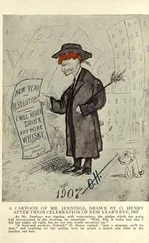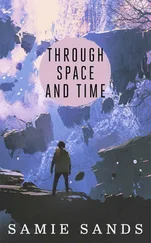Burton found his room to be small, yet much more elegant than he had expected. There was a bed and a large desk, both bolted to the carpeted floor. Other than that necessity aboard a submarine, it could have been a room at one of the finest hotels in London. He sat on the bed, finding his portmanteau sitting on the end of it. Burton found a small closet on the other side of the bed and began emptying the contents of his case into it. He removed his revolver and khuku N ri and placed them in a drawer of the desk.
Putting on his jebba , Burton climbed into bed. He closed his eyes, but he did not go to sleep for a long time. The strange ship, full of unusual noises no doubt peculiar to this form of transport, occupied his thoughts for a long time. When he at last fell asleep, his last thought was of Isabel.
Burton awoke, dressed, and waited for the knock at his door for breakfast.
A different man than Mr. Murgal met him at the door. “You will accompany me, please,” he said in a thick Indian accent. Burton nodded and followed. The man rapped three times on Challenger’s door, and it opened to reveal a fully dressed but bleary-eyed zoologist. He joined them, and together they were taken to the far end of the corridor, through a hatchway, and up a set of mahogany stairs to another corridor that opened up into a grand dining room dominated by a long table laden with pickled herring and other food taken from the sea.
Elizabeth Marsh was sitting near the center of the table. Next to her, chatting amicably, was a young man with blond hair, wearing a smart tweed suit. He was clean shaven, and his pale eyes sparkled in the electric light shining from above. Burton realized he was the same man he had spied the night previous.
At the head of the table sat a tall, rigid man of Indian descent. A turban of crimson silk adorned his stolid head, and he wore a crisp blue uniform with golden epaulets that spilled down the shoulders. The medals and symbols of rank adorning the uniform’s front was obscured by his thick yet neatly trimmed blue-black beard. The man’s intense dark eyes followed Burton and Challenger to the table, where they sat across from Elizabeth Marsh and the mysterious young man.
Miss Marsh addressed them. “Captain Richard Francis Burton, Professor George Edward Challenger, I’d like you to meet your host and the commander of this vessel, Captain Nemo.”
Burton arched an eyebrow. Nemo. Latin for “nobody.”
“It is a pleasure to make your acquaintances at last,” said Nemo in a crisp accent. “News of your exploits has reached even my ears, and I am honored to have you aboard my Nautilus .”
“The pleasure is ours, Captain,” said Burton.
Challenger grunted in the affirmative and skewered a piece of herring with a fork.
“And this,” said Marsh, motioning to her companion, “is—”
“I am an inventor,” said the young man. “You can call me Herbert.”
“What are you an inventor of, Herbert?” said Challenger around a mouthful of herring.
“Oh, many things. Mostly I am a machinist and student of optics.”
More interested in their host than to pay any heed to what Challenger and this Herbert lad were discussing, Burton regarded Nemo. The captain of the Nautilus projected a regal air. Where did he and his crew hail from, and how did he acquire this remarkable vessel?
Captain Nemo followed his gaze. “You are curious about me.”
“Well, uh, yes,” said Burton. “I mean no disrespect. This is just—” He waved his hands about the dining room. “Very strange. I’m sure you must appreciate that.”
Nemo gave a thin smile. “Of course, forgive me. I do not often have visitors. You are my guests. Ask your questions. If they are pertinent to the matters at hand I will answer them.”
“Well, then,” said Burton, unsure of where to begin. “This vessel. You built it yourself?”
“I did.”
“Do you live in it year round?”
“I do. My crew and I have shunned the land and all it contains, living always beneath the waves. All of our material needs are provided by the sea. We surface only to take on fresh air.”
“And you did this without the patronage of any government?”
Nemo nodded. “That is correct. I designed and built the Nautilus myself, for no other purpose than to live in it and explore the ocean’s depths.”
Burton continued studying Nemo while they ate, knowing full well that there was much more to this strange man than he was letting on. He turned his attentions to young Herbert, who devoured his meal with gusto while an attendant came around and poured them wine, a luxury Burton was surprised to find on a submarine vessel. It appeared not everything at Nemo’s table came from the sea.
“And what brings you aboard, Herbert?” asked Burton after a sip of the excellent vintage.
Herbert smiled brightly. “Well, I’m afraid seeing is believing. Suffice it to say I have brought something aboard with me that will be of immeasurable use in our adventure.” He glanced once at their host before drinking his own wine.
“But more to that point,” he added. “I am a student of the future. Our great and glorious future, when mankind has ended all disease and has stopped starting wars with one another. When there are no more social classes, and all of our material needs are taken care of.”
“Ho ho,” Challenger boomed. “We’re trapped aboard with a bleedin’ socialist.”
“Scoff if you will,” said Herbert. “but the time will come when what I’ve described will be. Mark my words. Just imagine it! An egalitarian society, free of want and social strata.”
“My dear young man,” said Burton. “Your ideals may be lofty, but I have traveled all over this world. I have seen man only capable of the same dark urgings, the same social shortcomings. The dearest ambition of a slave is not liberty, but to have a slave of his own.”
Herbert scowled and finished his breakfast in silence.
“When we are finished,” said Elizabeth Marsh, “Captain Nemo has promised you a tour of the Nautilus .”
The three men nodded and said nothing. Burton continued watching Nemo, wondering what he had gotten himself into.
7. A Masterpiece Containing Masterpieces
When everyone had breakfasted to their satisfaction, Nemo rose from the table. “Please join me on a tour of the Nautilus . When the tour is concluded I shall explain why I have asked you all aboard. Come.”
Burton and the others followed Nemo out the other side of the grand dining room and into a more finely appointed part of the underwater ship than the section containing Burton’s quarters. Expensive oil paintings hung in gilded frames from the walls, and plaster busts stood bolted to their pedestals or adorned recessed nooks in the walls. For all his shunning of the surface world, this Captain Nemo certainly brought much of it with him, Burton mused.
“The quality of the light is astonishing,” Herbert remarked. “This isn’t gaslight.”
“No, no,” said Nemo. “Gas would prove fatal in such an enclosed space. The lighting is provided by electricity, the same thing that powers the Nautilus .”
“How is this power produced?” Challenger asked.
“Sodium-mercury batteries,” answered Nemo. “The sodium is provided by extraction from seawater. That is also how we produce all drinkable water aboard ship.”
“Incredible,” said the young man as they continued onward. Nemo showed them a fully stocked library, every shelf bursting with leather bound volumes. But what impressed Burton the most was the enormous pipe organ that dominated the room, both with its size and its incongruity. It stood out as being unusual on a ship that was filled with wonders.
Читать дальше
